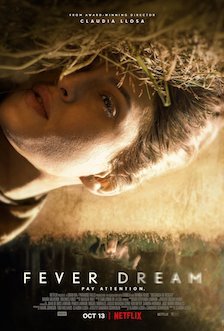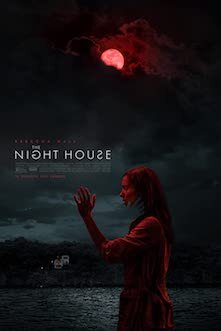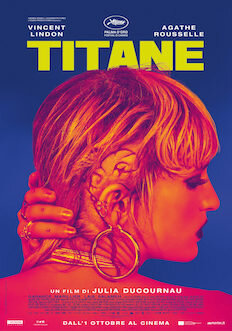Direction: Claudia Llosa
Country: Peru / Chile / other
Fever Dream is the fourth feature film by Peruvian-born filmmaker Claudia Llosa (Madeinusa, 2006; The Milk of Sorrow, 2009) who was bold enough to adapt the intricate 2014 novel of the same name to the screen. On that account, she worked directly with the book’s author, Samanta Schweblin, who lent a hand in the screenplay.
Carrying a mix of spaced-out and mystified tones, the film depicts the intense relationship between two young mothers - Amanda (María Valverde) and Carola (Dolores Fonzi) - who see and treat their respective children in different ways.
Amanda and her daughter Nina (Guillermina Sorribes Liotta) are spending a few days in a remote region where they meet Carola, a local woman who shows some reluctance in introducing them to her strange son, David (Emilio Vodanovich). Intriguingly, the film begins with Amanda in some sort of spiritual communication with David while being dragged into the woods, completely unable to move her body.
Although shrouded in ambiguity, the film’s core and intentions are pretty clear as the lens gets sharper to identify both the artifice in human nature and serious environmental circumstances. The sensory visuals, well-tuned by the Spanish cinematographer Oscar Faura (The Orphanage, 2007; The Imitation Game, 2014), compensate the soporific narration that nearly turns Fever Dream into a one-note psychological drama. On the other hand, the restraint with which Llosa handles the story adds melancholy layers instead of the usual creepy scenes that commonly undermine this type of story. It kept me interested, leaving a slightly eerie impression in the end, but without hitting me profoundly.








































